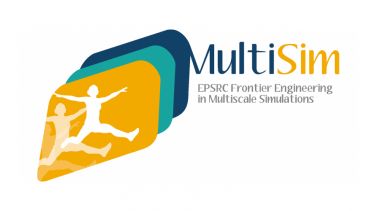Background
MultiSim is a ¬£6.7 million EPSRC Frontier Engineering Award project based at the University of 91÷±≤•‚Äôs Insigneo Institute for in silico Medicine.
This five year multidisciplinary project started on 1st September 2013, and has been extended until 1st September 2021 with Progression Grant funding, involving academics from the Faculty of Engineering and the Faculty of Medicine, Dentistry and Healthcare.
MultiSim’s vision is to develop a modelling framework focused on the human musculoskeletal system, however, this will be designed as a generic platform to address other engineering challenges that involve multi-scale modelling.
In addition, to saving time and money, the new computer tools will provide a more reliable diagnosis of the disease, a better treatment, and a detailed prognosis and monitoring of the treatment. The final goal of such a programme is to improve patients’ quality of life.
Aims
This project aims to create a new generation of predictive models capable of handling complex multi-scale and multiphysics problems, characterised by uncertain and incomplete information. This will secure the considerable breadth of our vision. The depth of the vision will be achieved by applying such radically new approaches to modelling the musculoskeletal system by integrating all interactions across space-time from the cellular scale up to the whole organism scale, individualised to each patient.
MultiSim: The rationale behind our research
The project focuses on the establishment of a currently non-existent but essential computational platform for the management of musculoskeletal disorders. The need for such a platform is essential considering that total healthcare expenditure in the UK has doubled from 2000-2010 to a staggering 10% of GDP.
During this period about half of the annual cost increase has been attributed to the use of new technologies or the intensified use of old ones, such as the increased use of CT scans. To control the spiralling cost, models are required to pre-assess patient specific diagnosis and treatment procedures, to predict the benefits, quality of life improvement and costs; in brief, to aid decision making for the individual patient.
To address this, the European Commission has spent more than €200M in the last 5 years on collaborative research projects developing the Virtual Physiological Human (VPH). The VPH is a methodological and technological framework that will enable investigations of the human body as a single complex system, which will be individualised to each and every one of us.
This is both a great vision and the ultimate challenge that this project addresses in the multi-scale modelling of the human musculoskeletal system.
This project will enable computational simulations that are not currently possible. Overcoming the currently insurmountable challenges in biological systems which arise from overlapping scales, partially observable states, and uncertainty will provide the VPH breakthrough and will also enable the development of much needed models of other complex engineering problems.
The Engineering and Physical Sciences Research Council (EPSRC) is the UK’s main government agency for funding research in engineering and the physical sciences. EPSRC invests around £800 million a year in research and postgraduate training, to help the nation handle the next generation of technological change.
The EPSRC mission is to
- promote and support, by any means, high quality basic, strategic and applied research and related postgraduate training in engineering and the physical sciences
- advance knowledge and technology (including the promotion and support of the exploitation of research outcomes), and provide trained scientists and engineers, which meet the needs of users and beneficiaries (including the chemical, communications, construction, electrical, electronic, energy, engineering, information technology, pharmaceutical, process and other industries), thereby contributing to the economic competitiveness of Our United Kingdom and the quality of life
In relation to the activities above, as engaged in by the Council and in such manner as the Council may see fit, to
- generate public awareness
- communicate research outcomes
- encourage public engagement and dialogue
- disseminate knowledge
- provide advice
The EPSRC vision is for the UK to be the most dynamic and stimulating environment in which to engage in research and innovation.
The Engineering and Physical Sciences Research Council is at the heart of discovery and innovation. EPSRC research saves lives, creates prosperity, protects the environment and inspires future generations.
You can find out more about the EPSRC here

MultiSim Project
Aiming to create a new generation of predictive models capable of handling complex multi-scale and multiphysics problems, characterised by uncertain and incomplete information.
